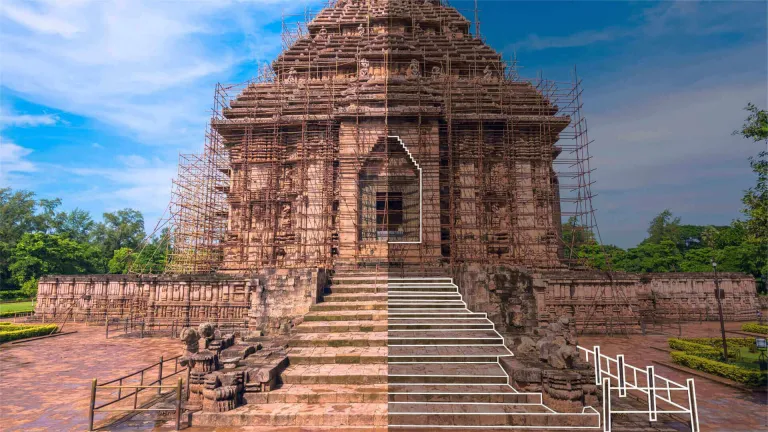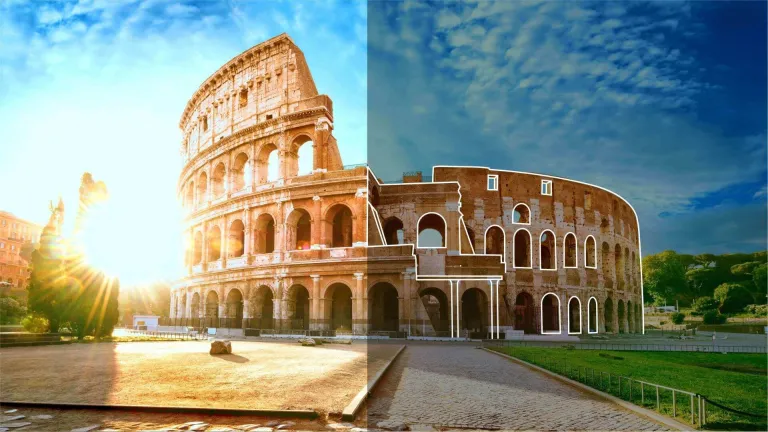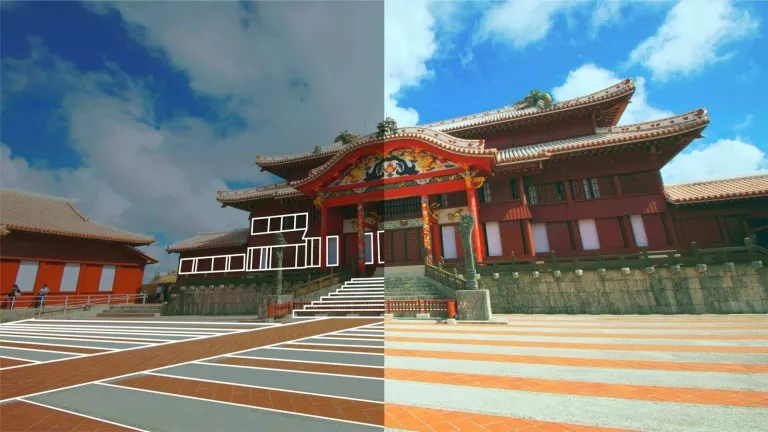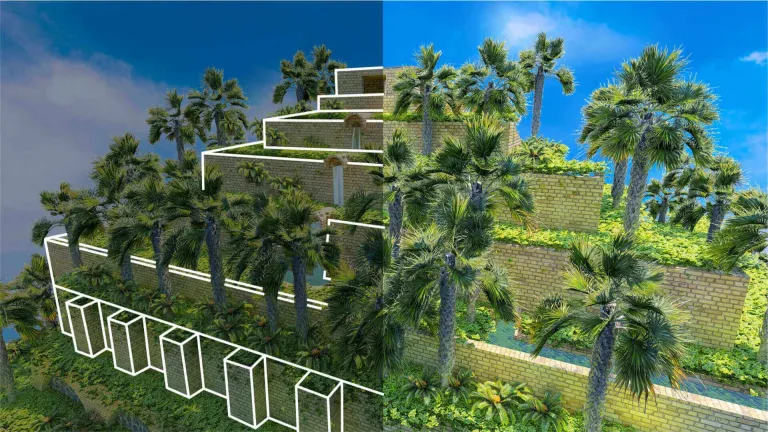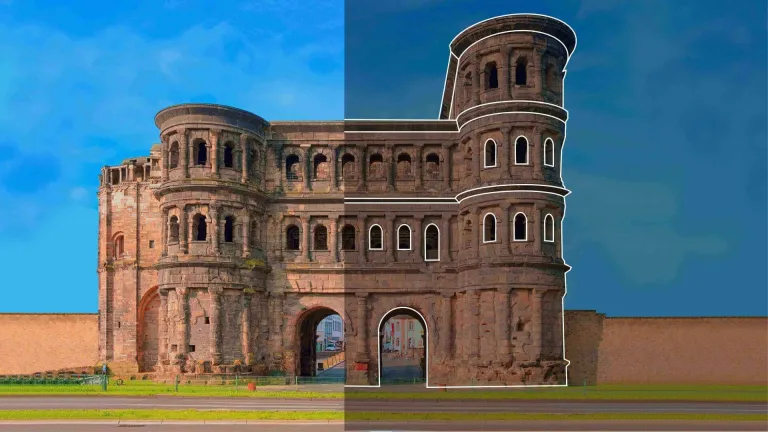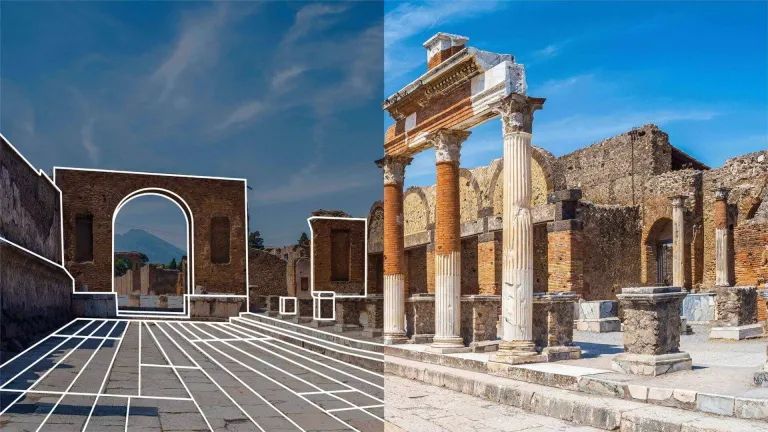Heritage & Future
Dassault Systèmes is shedding light on 10 major challenges faced by humanity. Victoire de Margerie, Vice-President Corporate Equity, Marketing & Communications, has invited the world to discover how virtual universes can spark innovative ideas and game-changing solutions to age-old challenges. For each challenge, we respond with an Act that symbolizes and highlights our commitment to help our planet survive and thrive. Because we believe The Only Progress is Human, we also seek to inspire others to act in their own spheres, for the good of all. Our latest Act: Heritage & Future.
UNTIL NOW
We approached modern challenges by studying the past
FROM NOW ON
We will rely on virtual worlds to navigate humanity’s most pressing social and environmental challenges
Understanding the future by reconstructing the past
The arc of human progress is etched with inventions and innovations, many of which are driven by lessons from our shared history. As a science-based and purpose-driven company, Dassault Systèmes has been a catalyst for human progress for 40 years – two generations. Our passion, creativity and enthusiasm has helped develop the virtual world to improve and extend the real world. Many of our achievements can be seen through the lens of technology, but they were ultimately realized by people and for people.
Over the course of 2021, we seized the opportunity to leverage our rich knowledge and know-how to spark conversations to build bridges between the generations; those who made our past achievements possible, and those who will imagine the virtual twin experiences for future generations. Internally, this took the form of a podcast series where pairs of collaborators share their vision for innovation on topics ranging from the evolution of diversity, equity and inclusion to the rise of virtual clinical trials. Externally, our 3DEXPERIENCE EDU team launched an online global student exposition in May 2022, giving new life to iconic places and lost masterpieces. The most recent Act in our The Only Progress is Human campaign, Living Heritage enables current and future generations to experience historic sites and monuments as they may have existed in ages past by exploring virtual worlds created by students using the 3DEXPERIENCE platform.
This celebration of our shared heritage invites us to explore how today’s solutions can give us a greater understanding of our common past, unlocking countless learning opportunities, bridging the generations and helping map our way to a better future.
Student teams worldwide nominated projects they wanted to develop, and our judges chose six:
Konark Sun Temple
Konark Sun Temple (Team India), a UNESCO World Heritage site dating to about 1250 AD. Dedicated to the Hindu sun god Surya, the temple complex was carved from stone to resemble a massive chariot, complete with wheels and horses.
The Colosseum of Rome
The Colosseum of Rome (Team USA), begun in 72 AD under emperor Vespasian and completed eight years later by Titus. Despite its immense size and age, it remains the world’s largest standing amphitheater, capable of hosting an audience of 65,000.
Shurijo Castle
Shurijo Castle (Team Japan), a UNESCO World Heritage site that served as the Ryukyu Kingdom’s palace from 1429 to 1879. Although repeatedly destroyed by fire and conquests over the centuries, nearly destroyed in the Battle of Okinawa in 1945, and heavily damaged by fire in 2019, the temple was always rebuilt.
The Hanging Gardens of Babylon
The Hanging Gardens of Babylon (Team Mexico), known in legend as a gift from the Babylonian king Nebuchadnezzar II for his homesick wife, Amytis. Although listed as one of the seven wonders of the ancient world, no archeological evidence of the gardens – rumored to have been destroyed by earthquake – has ever been found.
Porta Nigra
Porta Nigra (Team Germany), a UNESCO World Heritage site, one of four Roman gates built as entrances to the city of Trier, Germany, around 170 AD. Although never finished, Porta Nigra is the last of the four still in existence.
Pompeii
Pompeii (Team Netherlands), the ancient ruins of a thriving city of 20,000, was destroyed in a matter of minutes by the eruption of Mount Vesuvius in 79 AD.

